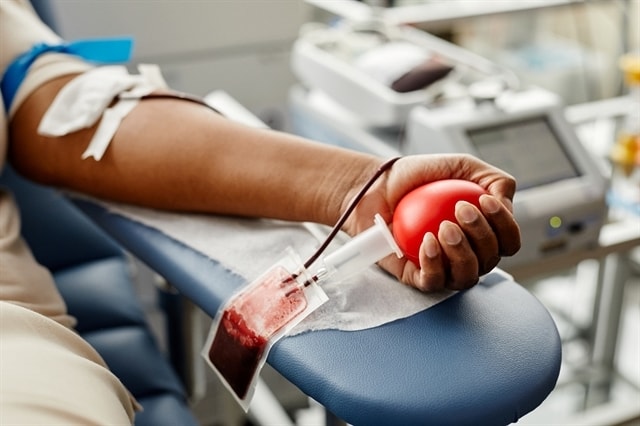June 14 - World Blood Donation Day
News - PublishedTime : 09:57, 14/06/2023
Blood types are classified into A, B, AB, and O groups. Each group is divided into two subtypes according to the presence or absence of the Rh factor’s D antigen. For example, blood group "A+" has the D antigen, and blood group "A-" doesn’t have the D antigen.
According to the Vietnam National Institute of Haematology and Blood Transfusion, in Vietnam, blood group O consists of about 45 per cent of the population, blood group B about 30 per cent, blood group A about 20 per cent, and blood group AB about 5 per cent.
People with the Rh factor, D antigen-negative blood group (A-, B-, AB-, and O-groups) are estimated to account for one out of every 1,000 people, which makes these blood groups rare.
People with rare blood types often struggle to find donors in times of crisis.
Blood donation is a vital way to save lives, and it plays a crucial role in the healthcare system. Blood products are widely used in various medical treatments. Blood donations are needed for accident victims, for planned and unplanned surgeries, and for those receiving ongoing treatment for leukaemia, cancer, or sickle cell disease.
Donating one unit of blood may save the lives of up to three people.

Donating one unit of blood may save the lives of up to three people. Photo: Shutterstock.com
Blood donation can also be very beneficial to the donor's health. When one donates blood, the body replaces it with new blood cells within a few days. Donating blood has also been linked to reducing the risk of heart disease, especially in men. Studies have shown that regular blood donation can reduce the level of iron in the bloodstream, which can help lower the risk of heart disease. Moreover, blood donation can also help prevent the development of various illnesses, such as cancer, Alzheimer's, and stroke.
Furthermore, blood donation can also be an opportunity to receive a free medical check-up. Before donating blood, donors undergo a screening process that includes testing for various medical conditions, such as hepatitis B and C, HIV, syphilis, and malaria. Donors who are found to have any of these infections are immediately referred for treatment. Additionally, during the screening process, donors receive a comprehensive health check-up that includes measuring blood pressure, temperature, and pulse rate, all of which are essential for detecting underlying medical conditions.
The process to donate blood is straightforward, quick, and takes about an hour. After donating blood, donors are advised to rest for a few minutes, and then they can resume their normal activities. It is essential to hydrate and avoid strenuous activities until the next day to prevent any adverse effects.
However, despite the importance of blood donation, there is a shortage of blood supply in many countries. According to WHO Vietnam, every year Vietnam needs about two million units of blood. However, at present, we can only meet about 70 per cent of this demand, the blood reserve at medical centers and hospitals is not enough to supply, especially when the demand for blood transfusion increases in the summertime, holidays, and Tet (Lunar New Year).
Blood donors must have normal blood pressure and meet the age, weight, and health requirements of the Ministry of Health to be eligible to donate blood as described below:
Age: A candidate can donate blood from the age of 18 years old to 60 years old.
Weight: Should be at least 42 kg for females, and 45 kg for males for whole blood donation. Those whose weights are from 42 kg to 45 kg can still donate sometimes, but they are permitted to donate up to 250 ml of whole blood per donation.
Do not suffer from chronic illnesses such as chronic lung disease, heart disease, hematopoietic disease, autoimmune disease, kidney disease, neurological disease, mental disease, etc.
People with infectious diseases are not allowed to donate blood.
People who are addicted to narcotics or alcohol are not allowed to donate blood.
Pregnant women cannot donate blood.
In conclusion, blood donation can help save lives and provide many benefits for donors. The demand for blood products in Vietnam is increasing, and it is critical to encourage people to donate blood. Donating blood has various health benefits for the donor and the opportunity to make a life-saving impact on people's lives.
VNS
